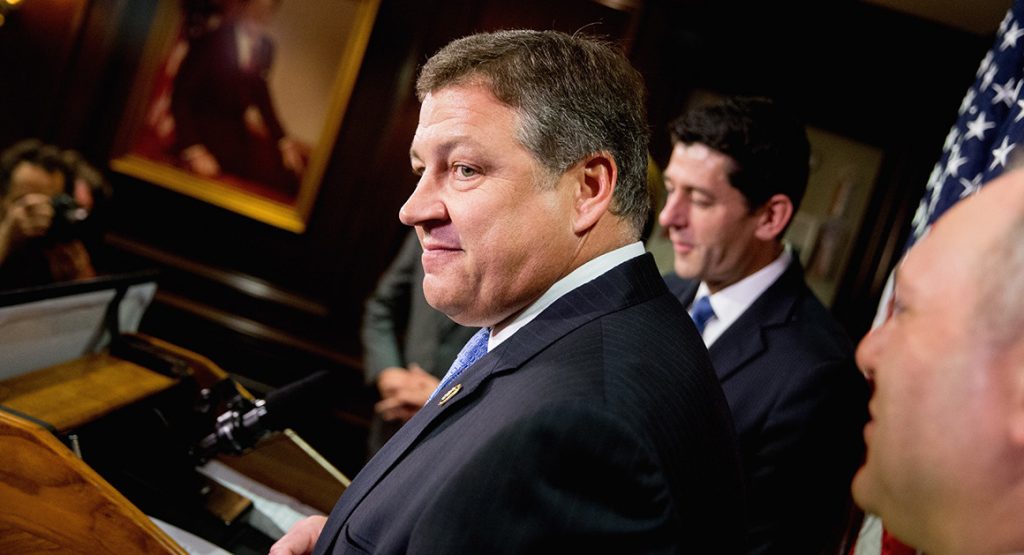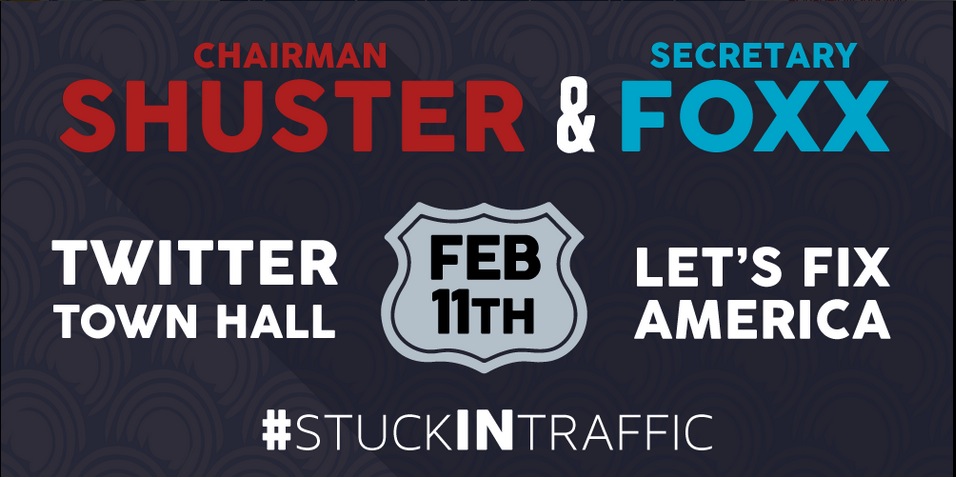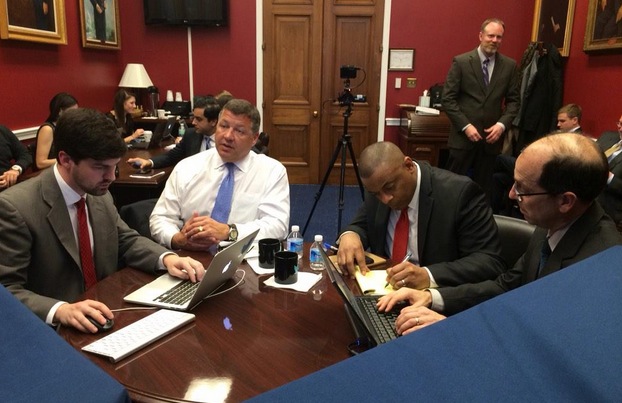
Rep. Shuster and Sec. Foxx address the importance of local control in today’s Twitter town hall

The chairman of a key House transportation committee and the nation’s transportation secretary today held a “Twitter town hall”, and what rose to the top? Among other things, local access to the federal resources that too often fail to trickle down to them.

Rep. Bill Shuster (D-PA), chairman of the House Transportation and Transportation Secretary Anthony Foxx took tweeted questions (hashtag #StuckInTraffic) for about an hour after Fox appeared at a committee hearing on the next transportation bill.
Representative Rodney Davis (R-IL) kicked things off with a question that gets at the heart of the issue many have with the federal transportation program: How do we get more money in the hands of communities to address the local issues taxpayers care most about?
How do you plan to help our small communities under 200k (many rural areas) gain access to their share of transportation $? #StuckInTraffic
— US Rep Rodney Davis (@RodneyDavis) February 11, 2015
Admittedly, the question was somewhat rhetorical. Rep. Davis is a key champion — along with Rep. Dina Titus (D-NV) – of the Innovation in Surface Transportation Act, , which would give local communities greater access to federal transportation funds to invest in their homegrown transportation plans and projects.
Without endorsing the bill per se, Chairman Shuster (R-PA) implied that he also wants to see local communities get access to the resources they need; from the money they pay into the federal program:
.@RodneyDavis #stuckintraffic Coming from a district that has only communities under 50k, I’m very concerned that there’s (1/2)
— Chairman Shuster (@Transport) February 11, 2015
@RodneyDavis access for share of transpo dollars. Important to work w/ states & local gov to make sure that happens (2/2) #stuckintraffic — Chairman Shuster (@Transport) February 11, 2015
During the earlier hearing, Rep. Davis brought up the importance of local officials having control over decisions of their communities while asking questions of Secretary Foxx.
“I had a lot of input from my local officials, and they want more local control. They want a dedicated funding source for more local projects, so that they can work together with our federal officials. And with that more local control of transportation dollars is a top priority of mine. And in the new highway bill where do you see local communities to share in funding?”
The current federal program doesn’t always work for local communities. Local governments are too often at the mercy of decisions being by the state, made far from where they live. The Davis-Titus proposal would bring the federal program closer to the people by allowing local governments more decision-making power and greater access to resources.
Secretary Foxx noted that the overwhelming popularity of the TIGER program is another signal that the federal program should do more for these places.
I think this one of the reasons why having a strong, robust TIGER program continue is very important, because that has been an area where local communities have had the ability to reach for federal funding directly and get it. As you well know, local communities are becoming very creative when it comes to figuring out ways to get things done. We should continue to encourage that experimentation.
While states and local communities are “very creative when it comes to figuring out ways to get things done,” they shouldn’t have to be. Last year, applicants for TIGER requested 15 times the $600 million available for the program, or a total $9 billion for needed transportation projects.
Without passing legislation like the bipartisan Innovation in Surface Transportation Act, these problems are only just going to get worse. We’re hoping that Rep. Shuster and Sec. Foxx heard that message loud and clear today.



